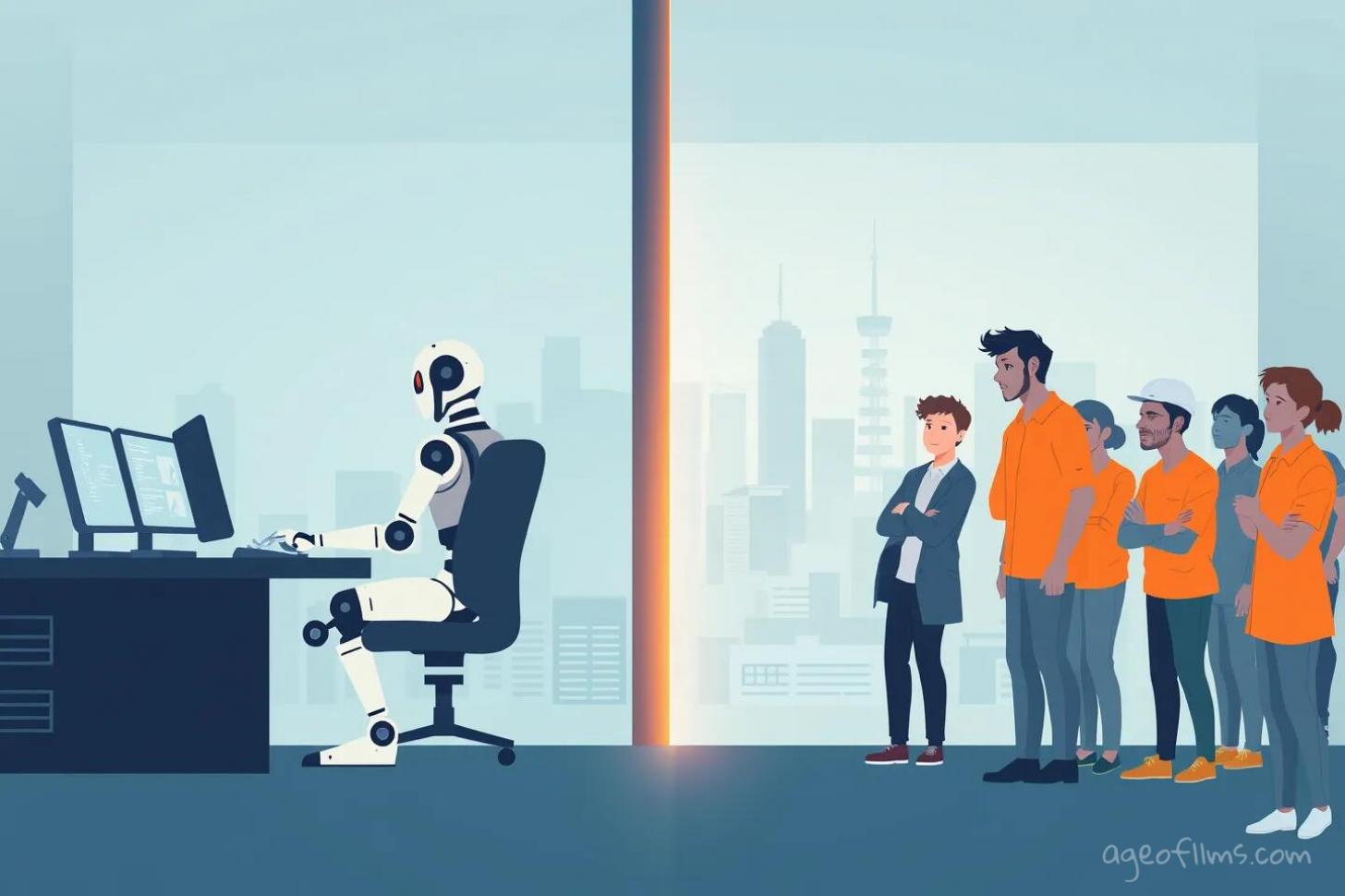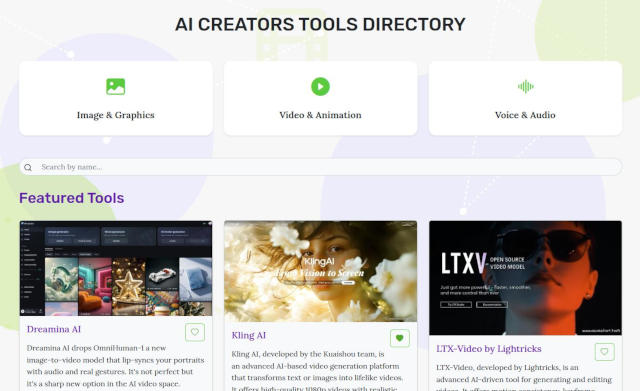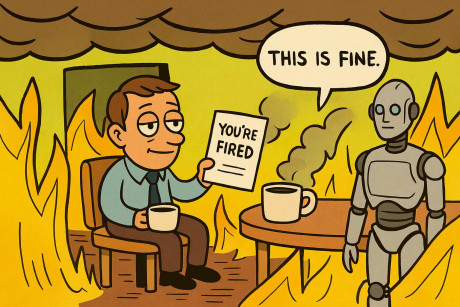AI Disruption: Job Losses and a Future in Flux
While some people are still in denial, acting like if you're not looking at the problem, it will just go away, AI is already changing the job market—and not in small ways. From tech giants to global banks, companies are streamlining their workforce with AI tools, putting thousands of jobs on the chopping block while betting on productivity gains. But while the numbers might thrill shareholders, the story for workers is a lot more complicated.

Salesforce and the AI Engineer Shift
Salesforce isn’t hiring engineers this year. With AI boosting productivity, the company says it can maintain its current engineering output without adding staff. Instead, they’re looking to hire up to 2,000 salespeople to market AI’s value to clients. Even though the company expects overall growth down the line, this approach hints at the growing reliance on AI over human labor.
META's CEO Is Predicting Job Cuts (But It'll Be Fine)
Mark Zuckerberg sees a similar trend at Meta. Speaking to Joe Rogan, Mark says that by 2025, he predicts AI will handle mid-level coding tasks, with most software written by machines by the 2030s. He paints a rosy picture, comparing it to how industrialized farming freed up labor for creative and cultural pursuits.
But here’s the catch: society had decades to adapt to those changes. AI is evolving at breakneck speed, leaving little time to adjust.
Banks Brace for Big Cuts
In banking, AI could eliminate up to 200,000 jobs over the next five years, according to Bloomberg Intelligence. Roles in back-office operations, customer service, and compliance are especially vulnerable as AI takes over repetitive tasks. Tomasz Noetzel, a senior analyst at Bloomberg, notes that while AI won’t erase jobs entirely, it will force a transformation.
The upside? Banks expect AI-driven productivity to boost profits significantly, adding up to $180 billion by 2027. Eight in ten industry leaders believe generative AI will increase efficiency by at least 5% in the near future. But for employees in at-risk roles, the reality isn’t as bright.
A Revolution Unlike Any Other?
Historically, technological revolutions created new industries to replace lost jobs. The printing press, the Industrial Revolution, and the rise of computers all displaced workers but ultimately expanded the economy. The difference this time? AI can automate a huge range of tasks across multiple industries, and it’s doing so at a speed we’ve never seen before.
While new roles like AI prompt engineering or architecture sound promising, they require specialized skills and extensive retraining. These roles might not be accessible to everyone, especially workers in repetitive, routine jobs. Instead of broad middle-class job growth, AI risks deepening the divide between highly skilled workers and everyone else.
The Road Ahead?
AI has incredible potential to enhance creativity and efficiency. But as it transforms industries, there’s a real risk it will leave many behind, at least initially. To prevent that, we need more than just optimism—we need some sort of a deliberate action to reshape how the economy works for everyone.
Published: Jan 13, 2025 at 11:49 AM


